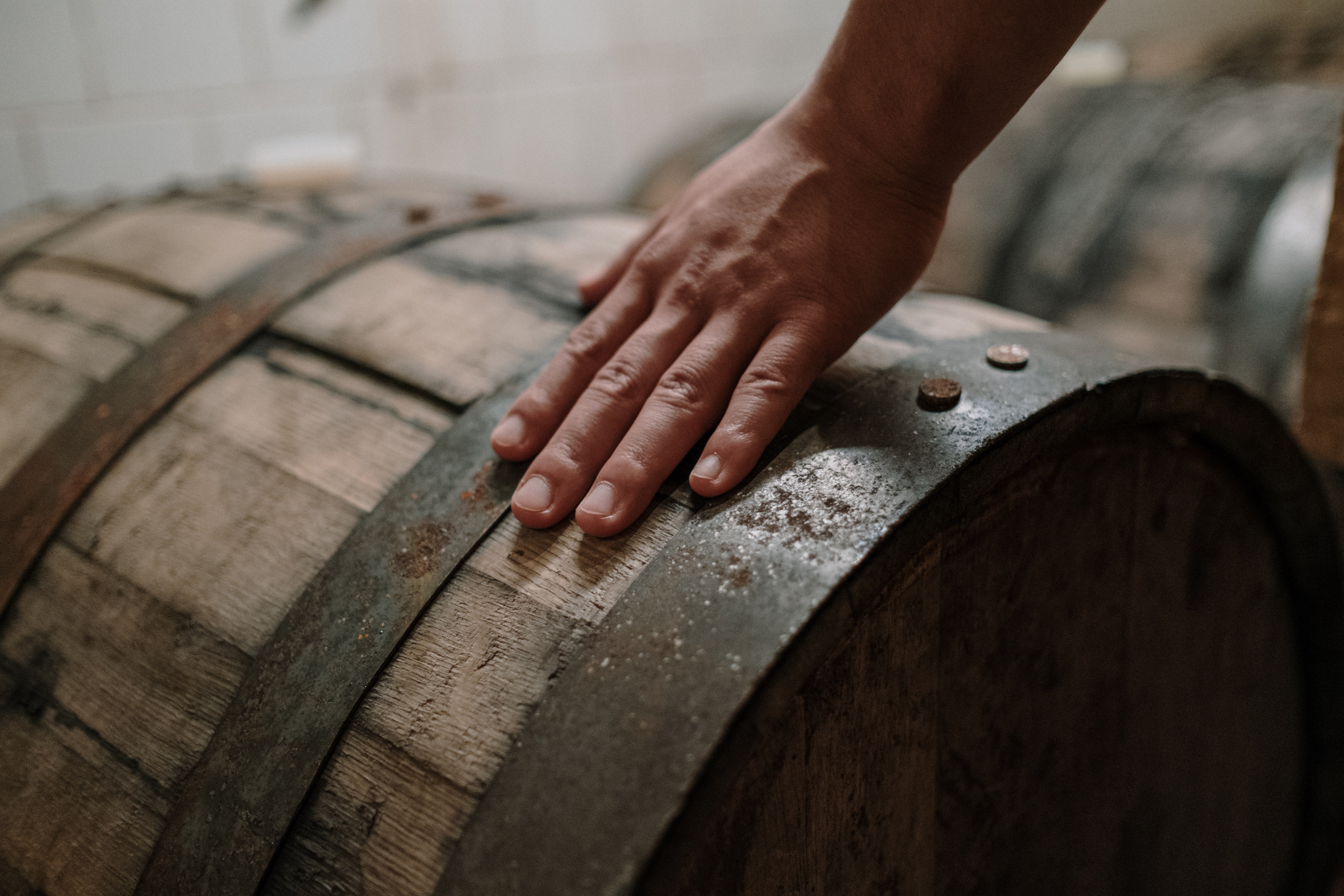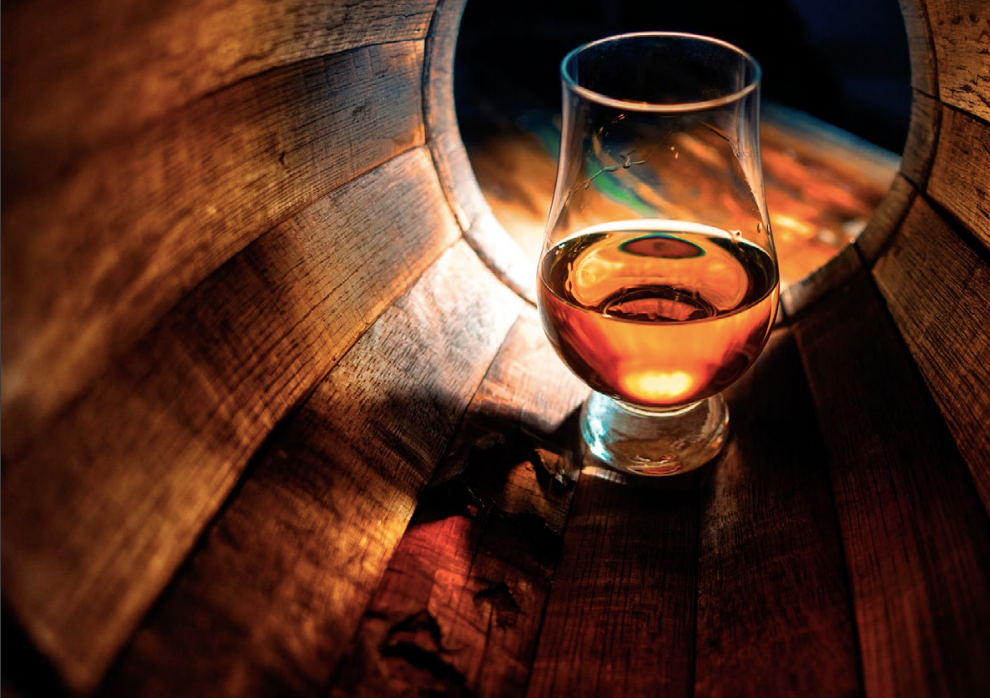Why whisky casks could be a better investment than you think
THE ARTICLES ON THESE PAGES ARE PRODUCED BY BUSINESS REPORTER, WHICH TAKES SOLE RESPONSIBILITY FOR THE CONTENTS

Seasoned whisky expert Jass Patel of Tomoka Casks discusses how investors can profit safely from cask whisky investments.
If a friend told you they’d made a 4,600 per cent return on a couple of whisky casks, you’d probably think they’d had a few too many, or that they’d been scammed. But this actually happened when bank manager Roger Parfitt made a £220,000 return on a pair of casks he bought in the 1990s.
In 1994 Mr Parfitt purchased a cask of Macallan single malt for £3,200 and a cask of Tobermory for £1,500. Despite not being a whisky expert, Mr Parfitt had expected the casks to appreciate in value over the years and hopefully generate a bit of extra cash to add to his retirement fund. To his surprise he successfully sold the casks earlier this year for £225,000.
He now plans to pay off his mortgage and retire three years earlier than planned. He’s also said he will purchase a cask for his two children which he’s nicknamed “the cask of mum and dad”, expecting to generate a healthy return to help fund their future.
“For me personally, when it comes to investing it has to be a sensible strategy,” he told The Times. “I believe that if you just do what everyone else is doing, you’re never going to get a result like this. The fact that it’s tax-free… you can prove the indexes, and Scotch whisky isn’t going out of fashion. I think it’s a good, alternative strategy.”
While returns of 4,700 per cent are exceptional, and whisky investments are unlikely to help you retire early, the key principle to bear in mind is that whisky casks do naturally appreciate over time. As a general rule, the longer a whisky has been aged in the cask, the higher price it can command. That’s why we pay significantly more for a Macallan 18-year-old than a Macallan 12. If it’s a Macallan 25 you’re after, you’ll be looking at a four-figure price tag.
Mr Parfitt’s story comes with the caveat that most investors will see much more modest returns. The vast majority of casks are unlikely to appreciate as much as those from the legendary The Macallan distillery in Moray. Investors would be wise to approach the cask market with a healthy dose of scepticism. You may have heard scare stories about cask whisky scams offering sky-high returns that later failed to materialise. As with any investment, it is vital to make sure you fully understand what you are paying for and steer clear of anyone promising get-rich-quick schemes.

Whisky prices are driven by age as well as the reputation of the distillery, rarity of a particular bottle or cask, and reviews from key tastemakers in the industry, such as Whisky Advocate or whisky critic Jim Murray. Investors can expect average annual returns of around eight to 10 per cent, with the BC20 cask index reporting an average of 13.09 per cent over the past five years. Older whiskies from top distilleries such as The Macallan command especially high prices and enjoy a cult following among collectors around the globe.
It’s important to remember that whisky is an asset-backed investment, meaning that once you have purchased your cask you will always have access to the whisky inside it which you can either sell on, or bottle whenever you wish.
Another hidden benefit is that Mr Parfitt’s £200,000 windfall will not be subject to any capital gains tax. Since HMRC classifies whisky as a “wasting asset” with a limited lifetime, CGT does not apply to any profits made on whisky casks. This is a nice advantage over other investment options, enabling you to maximise your overall returns across your wider investment portfolio.
Where some whisky investment firms come unstuck is delivering a solid and profitable exit strategy. Be aware that selling your cask onto a private buyer or a blender is unlikely to generate a healthy profit, especially if you hold a nondescript cask of no real provenance or you have paid over the market rate in the first place. That’s why Tomoka Casks offers a fully-managed service right through to bottling. We also have a retail arm selling fine spirits directly to consumers, which provides a ready-made exit route for our cask investors.
Transparency is key when it comes to managing your investments. We work with each of our investors to create an exit strategy that’s right for you. This includes upfront disclosure of all the costs involved, such as VAT and duty, so you have a clear and realistic expectation of your eventual profit.
For whisky enthusiasts such as Mr Parfitt, casks also give you the opportunity to get involved in the industry and bottle your very own whisky. “I remember thinking, if it doesn’t appreciate in value, the worst that could happen is that you would have to get it out of the warehouse, bottle it and drink it.” As well as a solid investment strategy, investing in your own cask could make you the proud owner of your very own whisky label.
Request your free Whisky Market Report to find out how you could profit from this rewarding alternative asset
Originally published on Business Reporter

Bookmark popover
Removed from bookmarks